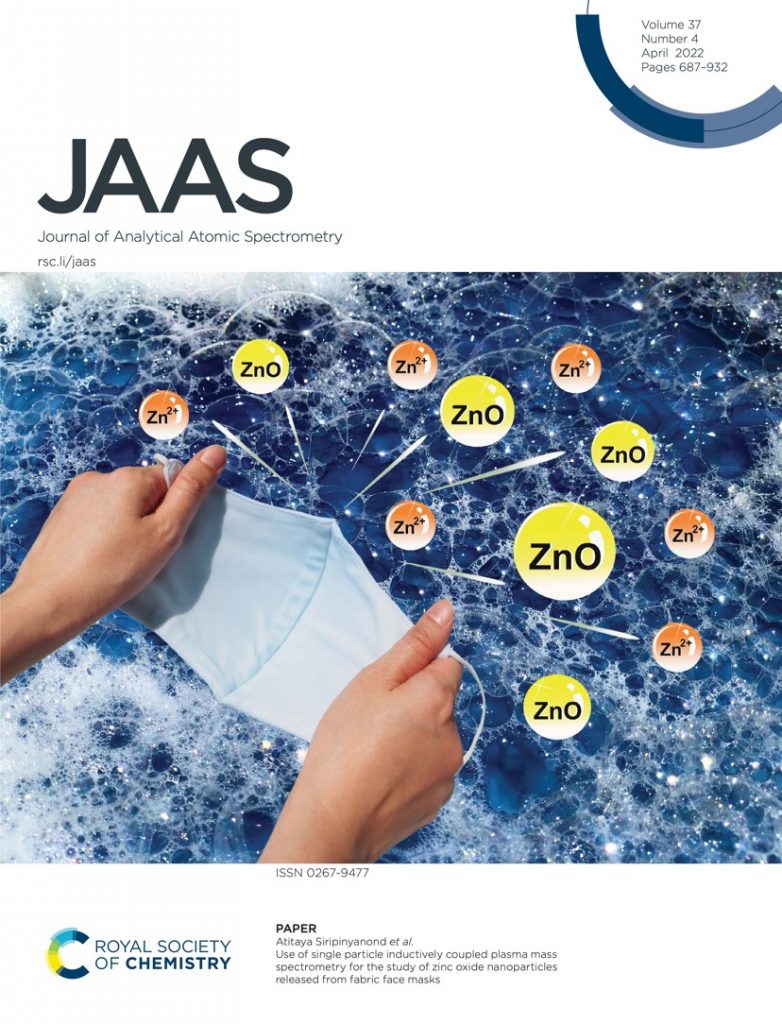Wanida Suwanroek, Jitapa Sumranjit, Tuksadon Wutikhun, and Atitaya Siripinyanond*
The release of ZnO nanoparticles from fabric face masks was examined by using single particle inductively coupled plasma mass spectrometry (SP-ICP-MS). The leachable amount of zinc from face masks upon washing can be estimated by shaking the face mask in the medium of water and detergent as washing solutions. Upon washing, the leachable amounts of Zn from fabric face masks were approximately 0.25–1.17% or 1.97–3.12% in the first washing cycle in water or detergent, respectively. After five washing cycles, the remaining Zn contents in the mass were still in the range of 94–95% from their original contents. The information on the remaining amounts of Zn after repeated washing cycles can be used to indicate that face masks may be washed several times while still being effective for anti-bacterial properties.
Thanks are due to the National Research Council of Thailand (NRCT) and Mahidol University under grant number N41A640159. The support from Center of Excellence for Innovation in Chemistry (PERCH-CIC) and the scholarship support given to WS from the National Science and Technology Development Agency (NSTDA) according to the Thailand Graduate Institute of Science and Technology (TGIST) scholarship agreement TG-NN-MU-63-084M are gratefully acknowledged. We also appreciate Professor Kalyanee Sirisinha for useful discussion through personal communication. This work is related to the SDGs 3 (Good Health and Well-Being) and 4 (Quality Education).

Reference: Suwanroek, W., Sumranjit, J., Wutikhun, T., Siripinyanond, A. Use of single particle inductively coupled plasma mass spectrometry for the study of zinc oxide nanoparticles released from fabric face masks (2022) Journal of Analytical Atomic Spectrometry, 37 (4), pp. 759-767. DOI: 10.1039/d1ja00447f
